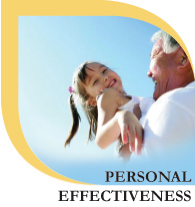Ingenuity

Ingenuity is the quality of being inventive and creative when faced with a variation in BC Public Service objectives and those of Indigenous peoples. It involves dealing with problems in original and creative ways that seek commonalities and links rather than gaps and differences. It is approaching issues with a willingness to question one's assumptions and to take risks outside of common ways of thinking and doing. The value of courage may be strongly demonstrated when using ingenuity.
Demonstrates the Behaviour When
- Tries something new
- Acts to take advantage of new ideas
- Engages with Indigenous people from the start and throughout the process
- Responds to creative ideas by listening for and discussing why they might work instead of telling why they won't work
- Seeks new ways to do business by finding and starting with links and commonalities (e.g. ideas, principles) between seemingly opposed objectives
- Presents a different perspective or challenges the status quo
- Uses collaborative brainstorming and keeps all ideas on the table
- Demonstrates an understanding that, if goals differ, it doesn't mean one is right and the other wrong
- Explores multiple paths to arriving at a solution
- Focuses first on desired outcomes and details afterwards
- Approaches barriers and setbacks with creativity
- Seeks feedback from others on performance and work results to generate options for innovation and change
- Demonstrates a belief in equal value of the ingenuity of others
- Positively challenges others to employ ingenuity in their work and service to Indigenous people
- Thinks beyond "more money" as the only solution
- Sets aside time for creative thinking
- Welcomes uncertainty and the unknown as fertile ground from which opportunities arise
- Fosters and supports opportunities for ingenuity in challenging times or circumstances
- Identifies and manages risk and proceeds with support
- Recognizes when risk taking by others could lead to mistakes; manages risks and supports learning from mistakes
Needs Development When
- Repeats behaviour, processes and actions proven not to work
- Protects information and shows reluctance to share
- Accepts existing systems and does not explore improvements
- Avoids taking thoughtful risks
- Takes risks without adequate risk management and support
- Fails to explore suggestions for improvement by Indigenous people
- Acts without creative dialogue with Indigenous people on how to improve
- Is unable to step back from current issues to identify potential opportunities
- Does not consider cross-cultural issues
- Focuses on deficits and differences rather than commonalities and links
- Demonstrates an inflexible "black and white" approach
- Makes decisions quickly and without consideration of alternatives
- Defends position rather than exploring alternatives
- Discards the unfamiliar as impossible
- Tries to make standard solutions fit within another cultural setting
- Gives up or delays action when barriers and setbacks are present
- Discourages the initiative of others to explore and innovate
- Makes minor adaptations to existing systems or processes when more sweeping change is called for
- Seeks support and influences others to maintain the status quo
